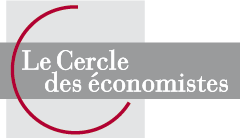Populisms and democratic sustainability
Modes de gouvernance
Écrit pour la session « Populismes et pérennité démocratique »
How can we explain the emergence and spread of populisms?
- Like nature, politics abhors vacuum. Populism thrives in unaddressed grievances. Dysfunctional and/or out-of-synch politics triggers populist responses.
On the one hand, populism thrives in lack of responsiveness or redress to material injustices such as inequalities or corruption; on the other, in the ‘lags’ between shifts in societal values and their political representation –resulting from demographic change (e.g. identity) or economic shocks (e.g. immigration).
Populists bring pre-existing inequalities and injustices into public discourse; but use public discourse to give political form to dormant ‘cultural lags’:- The ‘material’ strand of populism exploits the political system’s (i.e. the party system, the state apparatus, the courts) lack of responsiveness to redress economic inequalities or injustices such as corruption. This is often the case in developing economies with weak (democratic) governance. The collapse of political party systems that often accompanies the populist emergence (e.g. 1990s Latin America) sustains populists beyond electoral success.
- Even if the system does provide i) opportunities for plural contestation over remedies for inequalities and injustices, and ii) credible (state) capacity to redress them (e.g. well-established and affluent democracies), populists may seek to politicise the cultural shifts within societies –‘manufacturing’ new cleavages or ‘issues’ through polarising discourse, so they can remain electable in the eyes of those aggrieved.
- Populism spreads through the fast-paced, segmented, and biased forms of information and communication powered by digital technologies. We live in an age of declining interest in news and changed patterns of information consumption that may help explain the rise of so-called ‘post-truth’ politics fuelling populism. As if increasingly, people want to believe rather than to know. A global survey by the Thomsom Reuters Institute -the 2021 Digital News Report- finds that:
- “[T]he growth of online and social media has encouraged news organisations and individuals that take more overtly partisan positions than in the past.”
- “[…] a historic decline in interest in the news overall. (…) [B]oth political partisans and young people feel unfairly represented (…) Indeed, one of the most striking findings in this year’s data is the radically different habits of under-25s (so-called GenZ), even when compared with the millennials that came before them. These digital natives are less likely to visit a news website, or be committed to impartial news, and more likely to say they use social media as their main source of news. Deeply networked, they have embraced new mobile networks like Instagram and TikTok for entertainment and distraction, to express their political rage – but also to tell their own stories in their own way”.
Still, most people still think that news outlets “should reflect a range of different views” (74%) and “should try to be neutral” (66%). Cutting through ‘bubbles’ or the tribalism of social media and targeted (political) advertising is most urgent. - Last but not least: because economic inequalities, corruption and shifts in values are growing rather than narrowing down.

Authoritarian populists have a distinctively poor record addressing corruption. Rather, they end up exacerbating corruption. Alongside undermining democratic institutions, state capture is a common threat.
What are the invariants and consequences of populist economic policies?
Authoritarian populists have a distinctively poor record addressing corruption. Rather, they end up exacerbating corruption. Alongside undermining democratic institutions, state capture is a common threat.
- Populists often whip up nationalist passions to win power or hang on to it. Economic policy under nationalist leadership is often paired with the building of non-inclusive institutions that allow the extraction or capture of state resources. For instance, nationalists governing resource rich nations (e.g. Venezuela since Chávez; Brazil under Bolsonaro; Kazakhstan’s Nazarbayev, so on) often put their oil, forests, or minerals at the centre of their rhetoric and policy.
- Pledging to protect these resources, populist incumbents seek ways to increase their influence over their management. For instance, by granting their kin, cronies or sponsors key positions of influence in state-owned companies. The translation of nationalist rhetoric into policy may thus be vulnerable to cronyism -extraction of rents- or regulatory capture by these groups
- Example Brazil: one of the three Bs that lent financial and political support to then candidate Bolsonaro was the bancada do boi -a group with vested interests in deforesting the Amazon for cattle ranching. Such policy stems from the military doctrine that developing the Amazon was an exercise of sovereignty to keep foreign powers away from it.
- Example Venezuela: Resource rich countries often have state owned companies running the business. Reinforcing their influence over precious resources often consists of enabling cronies and other rent seekers profit from them. Chávez used his national broadcast to fire on live TV dozens of PDVSA executives one by one, by
The questioning of democracy: ideological or economic causes?
By questioning or branding oversight institutions and critics from society as traitors, populists legitimise the erosion of checks and balances that prevent the looting of public funds. The questioning of ‘liberal democracy’ then becomes a rhetorical ploy.
- Before manifestingin economic policy, populism is first political. It requires a political justification to remain relevant. To remain populist in office requires new political justifications -in addition to any variant of “classical” or “neo” economic populist policy. The authoritarian impetus comes here into place.
- Authoritarian populists are prone to scapegoating or “othering”. In addition to pitting the people against the elites, immigrants or foreign powers, a key political justification is assailing the checks and balances that constrain their power and the implementation of their policies. Populist governments feed off concentrations of power. There it lies the risk. As authoritarian populists undermine constraints on their own power, they enable most pervasive forms of corruption: grand corruption and state capture.
- Disabling accountability institutions (both in state and society) paves the way for pervasive corruption networks to colonise state institutions and connect high-level public officials with unscrupulous private sector actors; cronies, clan or kin; and crime syndicates in corruption schemes involving vast amounts of public assets. The weakening of electoral, oversight and justice systems, as well as the stifling of independent voices in society thus facilitate authoritarian populist to turn kleptocrats.
- Nationalism also works as “disabler” of societal checks: fears (real or perceived) of foreign interference in domestic politics have played in the hands of authoritarian populists to enact abusive “foreign agent” laws (e.g. in Nicaragua dubbed “Ley Putin”). The most prominent implication of such laws is the suffocating effect over the activities and funding of civil society groups, media organisations and individuals who are sponsored by foreign sources. To date, several countries have similar laws …
- For instance: in application of such a law, authorities in Nicaragua disallowed the participation of candidates that could challenge Ortega.
- Foreign agent laws can however be important tools to deter malign influence over democratic countries, such as disinformation campaigns or illicit political financing. Regulators must thread carefully though and avoid the situation created in Ireland, where the regulation of ‘third parties’ financing in elections did not distinguish between different “social” and “electoral” aims and has effectively led to a ban on all foreign donations (and all donations above €2,500 in any one year) to NGOs engaged in advocacy aimed at influencing public policy (including anti-corruption).
Oya Özarslan, Transparency International Board
Jorge Valladares, Transparency International Secretariat






